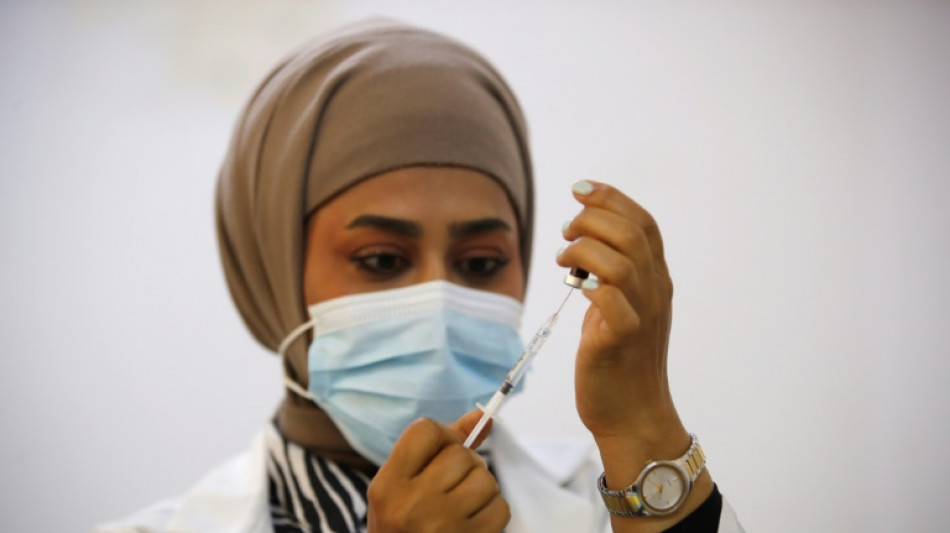
Last chance for pandemic agreement talks

Countries return to the negotiating table on Monday for one last push on concluding a pandemic agreement, now in slimmed-down form with some of the thorniest aspects stripped out and shelved.
Two years of talks towards sealing a landmark accord on prevention, preparedness and response hit the deadline last month with nothing agreed in terms of concrete wording. The next deadline is the May 27 start of the World Health Organization's annual assembly of member states.
The 194 countries in the WHO are coming back to its Geneva headquarters for a do-or-die round of negotiations from Monday to May 10, to narrow their disagreements on how to best share resources needed to fight off the next pandemic.
"The next pandemic is not a matter of if, but when. If a new pandemic began tomorrow, we would face many of the same problems we faced with Covid-19," WHO chief Tedros Adhanom Ghebreyesus warned on Wednesday.
"The key issue now is whether we will learn the painful lessons the pandemic has taught us."
- Streamlined new draft -
In December 2021, the raw sting of Covid-19 -- which shredded economies, crippled health systems and killed millions -- motivated countries' desire for a binding framework of commitments aimed at stopping another such disaster.
Despite broad agreement on what they want those commitments to achieve, big gaps remain between countries on how to go about it.
What was meant to be the ninth and final round of talks last month saw a 29-page draft swell to more than 100 as countries inserted proposed amendments.
Taking the situation into account, the Intergovernmental Negotiating Body (INB) conducting the talks, issued a streamlined, 23-page version on April 16, with the word count down from 12,000 to 9,000.
The main disputes have revolved around access and equity: access to pathogens detected within countries, access to pandemic-fighting products such as vaccines produced from that knowledge, and equitable distribution of not only counter-pandemic tests, treatments and jabs but the means to produce them.
The new draft focuses on likely areas of common ground, setting up the basic framework, and parks some of the trickier detail in further talks planned over the next two years -- notably on how a planned WHO Pathogen Access and Benefit-Sharing System will work in practice.
- Draft provisions 'weakened' -
Non-governmental organisations attending the talks have been ploughing through the updated text, looking for what has survived and what has been jettisoned.
K. M. Gopakumar, senior researcher with the Third World Network, concluded that the new draft was "devoid of any concrete deliverables on equity and does not create any legal obligations to facilitate predictable and sustainable access to finance, pandemic-related products and technology".
For the medical charity Doctors Without Borders (MSF), the draft agreement's obligations on technology transfer to poorer countries "remain weak".
The Drugs for Neglected Diseases initiative (DNDi) welcomed the retained provision on ensuring equitable access to medicines and health tools created through publicly-funded research and development.
However, obligations "that would have ensured that people can benefit from scientific progress and have equitable access to the medical tools they will need have been weakened or deleted from the text and must be reinstated", said DNDi's policy advocacy director Michelle Childs.
Some feel the balance of the text has shifted from international obligations towards national-level commitments.
- 'Fierce timeline' -
The next two weeks of talks may have been given a renewed sense of urgency by recent WHO warnings about the exponential growth of H5N1 bird flu -- with concerns about what could happen if it starts transmitting between humans.
The INB will take stock of progress on Friday to determine the way forward, and wants to complete negotiations on the text itself by May 5.
May 7-10 will focus on wording the resolution to be passed at the World Health Assembly.
"It's a very fierce timeline," WHO spokeswoman Margaret Harris told reporters on Friday.
While some countries are keeping their cards close to their chest, the White House has reaffirmed the United States' commitment to a successful conclusion of the talks.
Tsegab Kebebew Daka, Ethiopia's ambassador in Geneva, told an event in the city that "we believe the differences in the text are not huge. They are mainly differences of ideas, and there are not that many."
Australia's ambassador Amanda Gorely added: "All delegations need to come together and focus on finding consensus."
O.Merendino--PV
